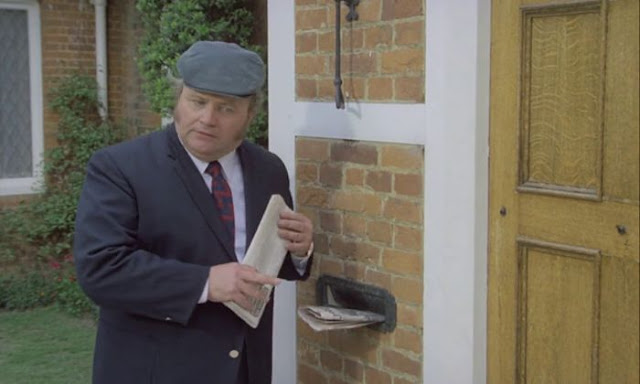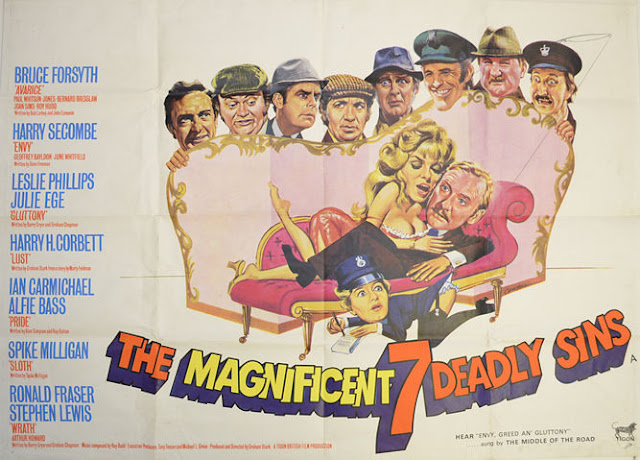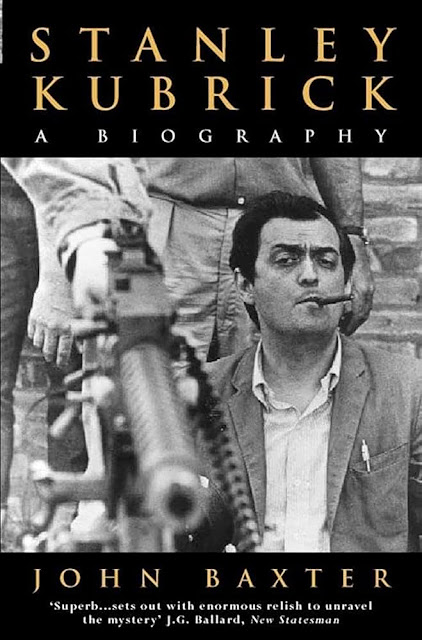The Magnificent Seven Deadly Sins (1971)
Genre Comedy Anthology
Country UK
Director Graham Stark
Country UK
Director Graham Stark
Screenplay Graham Chapman & Barry Cryer (Gluttony and Wrath), John Esmonde & Bob Larbey (Avarice), Dave Freeman (Envy), Graham Stark (Lust), Ray Galton & Alan Simpson (Pride), Spike Milligan (Sloth)
Starring Bruce Forsyth, Paul Whitsun-Jones, Bernard Bresslaw, Joan Sims, Harry Secombe, Geoffrey Bayldon, June Whitfield, Carmel Cryan, Leslie Phillips, Julie Ege, Harry H. Corbett, Ian Carmichael, Alfie Bass, Ronald Fraser, Stephen Lewis, Arthur Howard, Spike Milligan
Running time 107 mins | Colour / black & white
The Magnificent Seven Deadly Sins is a comedy film comprised of seven separate stories, each illustrating one of the Seven Deadly Sins - avarice, envy, gluttony, lust, pride, sloth and wrath. The film was directed and produced by the comic actor Graham Stark, and pressed into service a variety of British comedy writers, actors and comedians of the early 1970s.
In the first story, Avarice, Bruce Forsyth (an actor and comedian at one time, but now much better known as a TV game show host) plays Clayton, the chauffeur for greedy business tycoon Mr Elsinore (Paul Whitsun-Jones). When Clayton sees a fifty pence piece lying in the street, he and Elsinore both try to pick it up, accidentally knocking it into a drain in the process. Elsinore orders Clayton to retrieve the coin, leading to an increasingly absurd set of circumstances involving Clayton, a passing fisherman (Roy Hudd), a policewoman (Joan Sims) and a sewer worker (Bernard Bresslaw).
Avarice was written by popular sitcom writers John Esmonde and Bob Larbey. They would soon enjoy a massive popular success with the evergreen sitcom The Good Life ("Good Neighbors" in the US), but they're not on form here and this sequence is strained and not that funny, despite a promisingly savage premise. The story is also let down by some of the details, particularly the concluding scene when one character falls down a manhole cover that's obviously far too small for anyone to fall down, least of all someone of his huge bulk.
 |
| A romantic night in for Ingrid (Julie Ege) and Dickie (Leslie Phillips) in "Gluttony" |
The second story, Envy, stars Carmel Cryan and Harry Secombe as two nouveau riche football pools winners on the hunt for a new home. When they see the charming country abode of Geoffrey Bayldon and June Whitfield, Cryan decides that she absolutely must have it, no matter what it takes.
But the occupants are not interested in selling, no matter how much she offers, leading Secombe as her put-upon husband to adopt a variety of disguises and desperate measures to force them out. These include claiming that a new airport is about to be built nearby, that the area suffers from catastrophic flooding and that Secombe, in very half-hearted blackface, is one of a number of West Indian families about to move in next door. If you've ever wondered why The Magnificent Seven Deadly Sins isn't shown on TV anymore, then this is probably why, although the Afro-Caribbean impression is too lame to be offensive.
The script by Dave Freeman (mostly a television scriptwriter but also later the writer of Carry on Behind and Carry on Columbus) and enthusiastic performances manage to get a laugh or two here, despite the absurdity of the material and the situations and a slight air of desperation.
In several places online this segment is referred to as "Greed", but it's definitely called Envy. Greed is not the real motivation in this sketch, and there is already a story in the film called Avarice. Greed and avarice are the same thing, so if this was called "Greed", then the film would have to be called "The Magnificent Six Deadly Sins".
 |
| Stanley (Harry Secombe) has an offer the owners of this house can easily refuse in "Envy" |
Gluttony is written by Graham Chapman (of Monty Python fame) and British comedy perennial Barry Cryer. It stars Leslie Phillips as an advertising executive for a diet food company. Although he claims to exist on eight of their special diet biscuits a day, when no one is looking he secretly gorges himself on doughnuts, toast, massive ham sandwiches and rice pudding. When he's invited by company Vice President Julie Ege for a romantic dinner at her home, his gluttony gets the better of him, causing him to miss out on a night of passion with the eager Ege.
This section is fairly lame and it feels as if the writers were not that inspired by the idea of a sketch based on gluttony. What the gluttony story really needs is something disgustingly bodily, like the "Mr Creosote" scene in Monty Python's The Meaning of Life. You also expect to find Leslie Phillips in the Lust story, or at least one that has something to do with leering, and he's much less believable lusting after a ham sandwich than he is after a beautiful woman.
Talking of which, the next story is called Lust, and is written by Graham Stark from a story by Marty Feldman. It stars Harry H. Corbett as Ambrose, a sad, would-be Lothario who is all alone once again on a Saturday night. Corbett's role is a mixture of his characters in Rattle of a Simple Man (1964) and the sitcom Steptoe and Son (1962-74).
Everywhere the lonely Ambrose goes he seems to be assailed by images of beautiful and barely-clothed women. After an eventful trip on the London Underground, during which he mistakes fellow passenger Bill Pertwee for a young woman (as you do), he finally plucks up the courage to approach a pretty girl who's been stood up.
This is quite a sad little story with an unhappy ending, that leaves you wondering if poor Ambrose didn't end up in front of one of those Underground trains at the end. The idea of trying to pick up a girl at an Underground station also seems a little ... odd. But, hey, it's 1971, so whatever. It's not really about lust though, more about loneliness, which makes this story feel as if it doesn't quite fit here.
 |
| Ambrose (Harry H. Corbett) tries to clear up a misunderstanding in "Lust" |
In Pride, Ian Carmichael and Alfie Bass play two drivers who meet on a narrow country lane. Carmichael is a grand businessman driving an open topped Rolls-Royce, and wearing a natty hat, three piece suit and driving gloves. Bass is a trade union shop steward, driving an ancient and tiny Austin 7 and wearing a battered flat cap and dishevelled clothes.
Each man stubbornly refuses to give way to the other. Both claim they are further along the lane than the other, and Carmichael argues that, as his car is much bigger, it's easier for Bass to back his smaller car up. The two men engage in some half-hearted fisticuffs, while their respective partners read a fashion magazine or do their knitting.
As the stand-off reaches a stalemate, the two women, played by Audrey Nicholson and Sheila Bernette, sit by the roadside for a companionable picnic, while their men continue to argue. Eventually, an AA breakdown patrolman appears, and then, to complicate things, a patrolman from the rival RAC, and finally a policeman.
This story was written by Ray Galton and Alan Simpson, the writers of Hancock's Half Hour and Steptoe and Son. It has a simple but neat premise and, like most of these stories, has a twist ending of sorts.
The two men's encounter obviously has a strong class element, as Rolls-Royce driver Ian Carmichael is far too grand to give way to a grubby little Austin, while Alfie Bass is a trade unionist who is naturally bolshie anyway and doesn't want to give in to Carmichael just because he's got the fancy car. Their rival motoring organisations would also have carried class connotations at this time, with the Royal Automobile Club obviously being seen as more upmarket than the Automobile Association.
 |
| Mr and Mrs Ferris (Ian Carmichael and Audrey Nicholson) in "Pride" |
Sloth is a surreal black and white silent film, complete with old style title cards, written by and starring Spike Milligan. It's a riff on the various ways that people can be idle and the problems that might bring.
Spike plays a man who dies of old age while waiting for an apple to drop from a tree, Marty Feldman stands around waiting for a tree to fall down rather than bother to walk around it, and David Lodge is a man trying to sleep, who simply puts a bowl on his chest when leaking water keeps dripping onto him.
Meanwhile, another man refuses to save someone from drowning because he still has ten minutes left on his deck chair ticket, and Madeline Smith and Cardew Robinson are a honeymooning couple who have a dull wedding night because they are in separate beds. This last idea doesn't quite work, as it's more like a lack of imagination than slothfulness. The man in the deck chair is not really slothful either, he's more like a penny-pinching miser.
Still, this absurdist short is at least unusual and composer Roy Budd is obviously enjoying himself, providing the sequence with an energetic old time silent movie score.
The film ends with Wrath, by Barry Cryer and Graham Chapman. This is an improvement on their earlier section on Gluttony, and stars Ronald Fraser and Arthur Howard as two retired old boys whose feud with an officious park keeper leads them to try to murder him in increasingly elaborate ways.
These include stabbing, clobbering him with a giant mallet, using an improvised crossbow and, eventually, high explosives. The park keeper is played by Stephen Lewis, playing exactly the same character as his signature role of Blakey in the sitcom On the Buses and even wearing the same hat. Like many of the other stories, this one ends with a moderately satisfying twist.
 |
| Clayton (Bruce Forsyth) tries to retrieve the coin in "Avarice" |
The idea behind The Magnificent Seven Deadly Sins is quite a good one. Get seven (or six in this case) sets of seasoned comedy writers to write a longish sketch on a given theme, cast some familiar comedy names and get ready for laughs. The title is obviously a play on the 1960 western The Magnificent Seven, maybe with a hint of the Shirley MacLaine anthology Woman Times Seven, from 1967. The film was shot at Pinewood Studios, with some location filming in the local area.
Although other comic and dramatic anthology films were occasionally made in the 1950s and '60s, The Magnificent Seven Deadly Sins seems to have most in common with the contemporary horror film anthologies produced by Amicus. The Magnificent Seven Deadly Sins was in fact made by another horror film company, Amicus's rival Tigon British.
As with the Amicus films, there are often twist endings to the stories and the greedy, gluttonous and wrathful usually get their comeuppance. One story even ends with the characters being punished by being sent to Hell to be tormented all over again, a twist that Amicus would no doubt have recognised.
As with other anthology films, there is the advantage that if you don't like one story then another one will be along soon. The stories are also made in a variety of styles, from tragi-comedy to surreal silent movie, by way of farce and social satire, and the film is quite brisk, as it needs to be to fit in seven separate stories.
Both Lust and Pride were based on episodes of the half hour Comedy Playhouse TV series. Lust was based on the episode "Here I Come Whoever I Am", written by Marty Feldman. Pride was based on an episode in that series called "Impasse". The same script was adapted again in 1996, this time for the comedian Paul Merton, when he starred in new versions of classic Galton and Simpson scripts in his ITV series.
 |
| British quad poster for The Magnificent Seven Deadly Sins |
The stories in The Magnificent Seven Deadly Sins are linked by animated sequences by Bob Godfrey, featuring a cartoon version of the director, usually shown lining up the next scene. Stark is portrayed as a stereotyped film director with a megaphone and, for no particular reason, a German accent.
There's also a totally irrelevant semi-nude scene at the beginning, which is presumably meant to be a joke about irrelevant nude scenes. There are at least three semi-naked women (two of them in the Gluttony story), as well as some nudity in the opening titles, which is not bad going for an 'A' certificate (the equivalent of a modern PG). This all adds to the film's early 1970s period feel, with plenty of blonde dolly birds, men in blackface, football pools winners and jokes about Swedish au pairs.
The film also has a lot of familiar faces of the time, some of them seen in many British comedies, including Joan Sims, Leslie Phillips, Bernard Bresslaw and Ian Carmichael. Others are television and radio comedians less often seen in films, like Bruce Forsyth and Roy Hudd. There's also a small part for Penthouse magazine founder Bob Guccione, as a photographer in the Gluttony story.
Unlike the Amicus films, though, there are no big names to appeal to international audiences, like maybe Peter Sellers or Terry-Thomas. Sellers was a buddy of Graham Stark's and did appear in his short film Simon Simon the previous year, so it's not outside the bounds of possibility that he could have been tempted to appear here, especially as his film career wasn't in the best shape at the time.
The Magnificent Seven Deadly Sins was a departure from Tigon British's usual fare, but it wasn't a box office success and brought a swift end to Graham Stark's directorial career. It didn't find a U.S. buyer until 1975, and even then it was only a small time one. Tigon British would later release some of the individual stories as short supporting features for their adult films, in an effort to make some of their money back.
Inevitably, the film is an uneven one and some stories are more successful than others. Pride is the most satisfying segment and Sloth the most distinctive. Lust is affecting in a way, but is sad rather than funny, while Gluttony and Avarice don't come off at all.
Given the personnel involved, The Magnificent Seven Deadly Sins is nowhere near as funny as it should be, but the cast and the eclectic group of writers from different strains of comedy - from Carry On to sitcoms, Monty Python and The Goon Show - make it of interest to British comedy fans in particular.
Cast Felicity Devonshire (Nude girl), Bruce Forsyth (Clayton), Paul Whitsun-Jones (Elsinore), Bernard Bresslaw (Mr Violet), Joan Sims (Policewoman), Roy Hudd (Fisherman), Julie Samuel (Petrol attendant), Cheryl Hall (Vanessa), Susanne Heath (Chloe), Harry Secombe (Stanley), Geoffrey Bayldon (Vernon), June Whitfield (Mildred), Carmel Cryan (Vera), Leslie Phillips (Dickie), Julie Ege (Ingrid), Patrick Newell (Doctor), Rosemarie Reed (Woman), Sarah Golding (Secretary), Bob Guccione (Photographer), Tina McDowall (Penthouse Pet), Harry H. Corbett (Ambrose), Cheryl Kennedy (Greta), Bill Pertwee (Cockney man), Mary Baxter (Charlady), Anouska Hempel (Blonde), Ken Earle (Boy friend), Nicole Yerna (Thin girl), Sue Bond (Girl with glasses), Yvonne Paul (Receptionist), Ian Carmichael (Mr Ferris), Alfie Bass (Mr Spencer), Audrey Nicholson (Mrs Ferris), Sheila Bernette (Mrs Spencer), Robert Gillespie (AA man), Keith Smith (RAC man), Ivor Dean (Policeman), Spike Milligan (Tramp), Melvyn Hayes (Porter), Ronnie Brody (Costermonger), Ronald Fraser (George), Stephen Lewis (Jarvis), Arthur Howard (Kenneth)
Guest appearances in Sloth: Ronnie Barker, Peter Butterworth, Marty Feldman, Davy Kaye, David Lodge, Cardew Robinson, Madeline Smith, Graham Stark
Producer Graham Stark Cinematography Harvey Harrison Art director Roger King Editors Rod Nelson-Keys, Roy Piper Music Roy Budd Animation Bob Godfrey Films
Production company Tigon British Pictures
Distributor Tigon Pictures (UK), Thaddeus Distribution (US)


Hi Jay, I see you are continuing your mission to write lengthy articles on mediocre movies that don't really deserve them, as you once put it (as far as I remember). :)
ReplyDeleteI wish I could say something halfway intelligent about this comedy now, but of course it's completely unknown to me. But be assured, I read your essay about it.
What can I say? I'm a man of my word. ;)
DeleteOut of interest, how many of the actors in this are you familiar with?
Not really that many. I know Graham Chapman of course, Joan Sims, Ian Carmichael, Alfie Bass, Marty Feldman and Madeleine Smith.
DeleteThat's more than I was expecting, although I thought you might know Leslie Phillips, who's been in some non-comedy stuff (Out of Africa, Scandal, Empire of the Sun, Tomb Raider).
DeleteAnd indeed I do. Had to look him up though and he's one of those faces you see a lot in films, but never know the name.
DeleteAlso the voice of the sorting hat in Harry Potter. "Bee in your bonnet, Potter?" Although I wasn't sure if he was quite right for that.
DeleteI'm slightly surprised you know Madeline Smith, as you're not into Hammer horror.
I've ordered a copy just out of curiosity since practically all the cast were very frequent faces on TV in the seventies. Hoping it will be a nostalgic experience at least. Also a big fan of Cheryl Kennedy, grossly overlooked in my opinion.
ReplyDelete